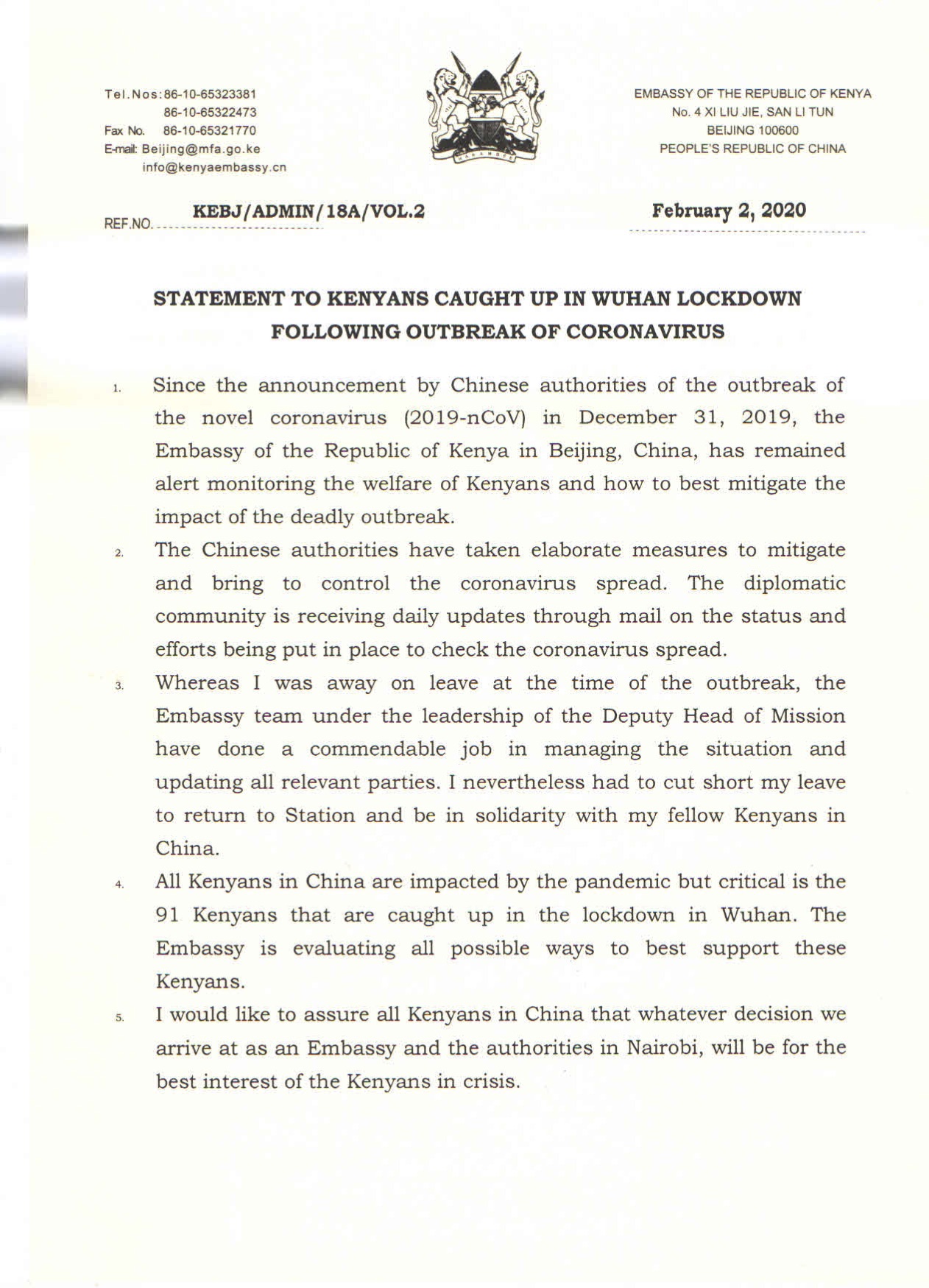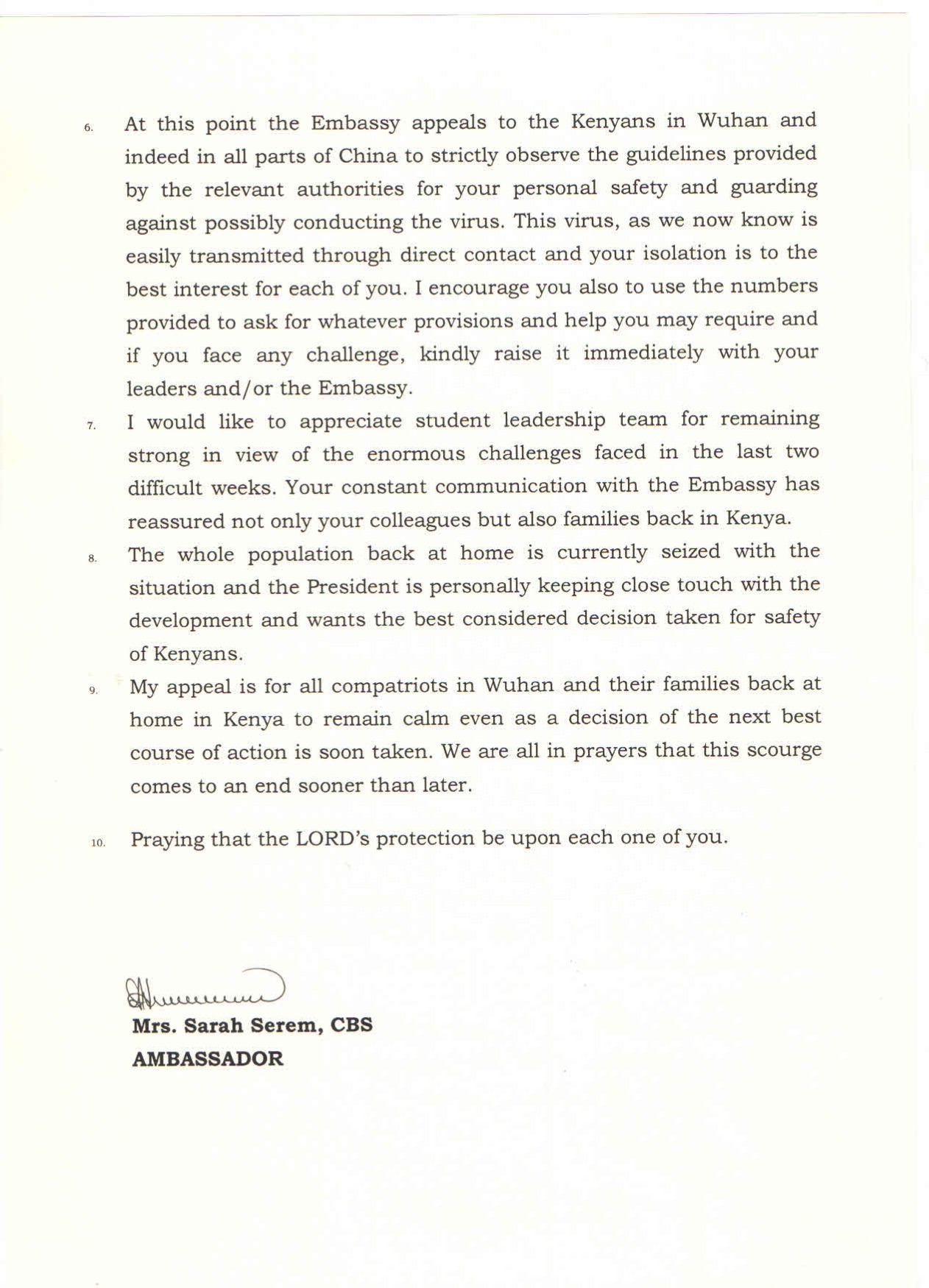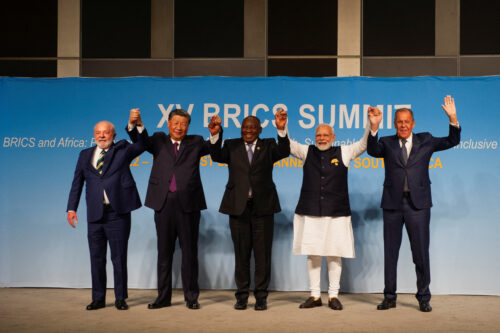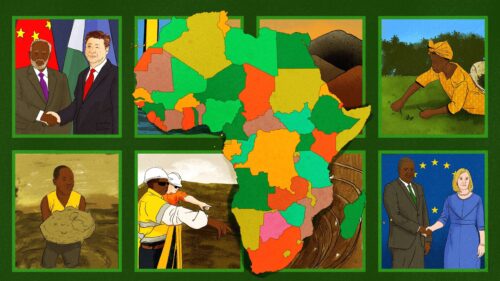Kenyan students in Wuhan plead for evacuation
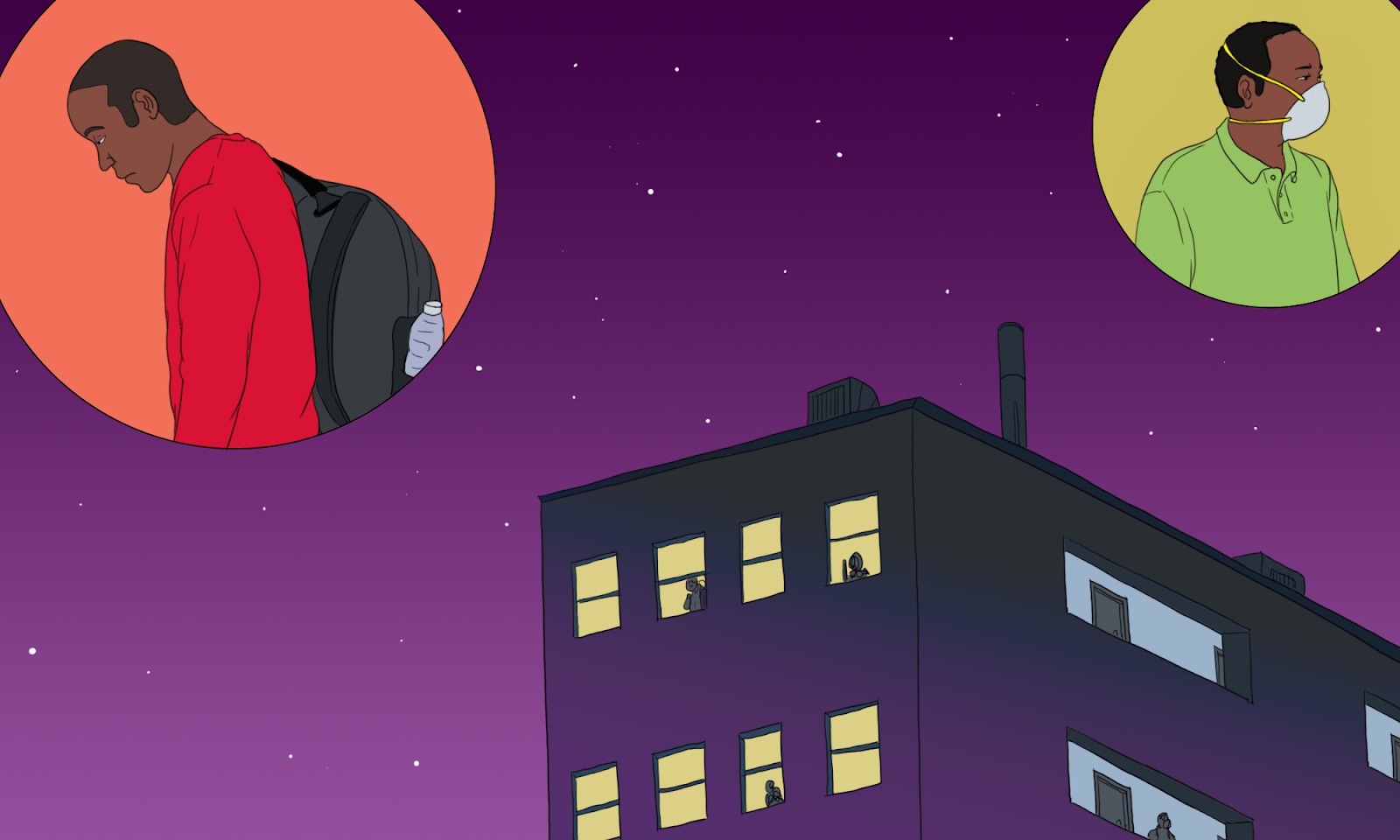
Illustration by Derek Zheng for The China Project
On January 31, eight days into the lockdown of Wuhan, 17 members of the Kenyan Students Association of Wuhan wrote a letter to Sarah Serem, Kenya’s High Commissioner in China. “There is rising panic and tension among the Kenyan students over here, as well as their parents back home,” the signatories wrote. “Presently, a majority of the students can no longer keep calm.”
The letter marked the first time an official statement revealed the sense of terror that many Kenyans under lockdown in Wuhan were experiencing, particularly as other countries began evacuating their citizens from the epicenter of the coronavirus epidemic.
The signatories emphasized that although they have “continued to adhere to all the set regulations and precautionary measures,” circumstances had taken a dramatic downturn. They implored the Kenyan embassy to arrange an evacuation of Kenyan citizens, noting, “As a small community here, we feel isolated and deserted.”
By the time the embassy responded on February 2, the number of confirmed coronavirus cases had almost doubled, to 17,400. (As of Wednesday morning, the number of suspected cases in China surpassed 20,000, with 65 reported coronavirus-related deaths in one day, again a new high.) In her response, Serem encouraged Kenyans in Wuhan to “remain calm” and continue to “strictly observe the guidelines provided by the relevant authorities.” She mentioned cutting short her holiday in Nairobi to return to Beijing and “be in solidarity” with her fellow Kenyans in China, but reiterated that Chinese authorities have taken extensive measures to control the situation and that the embassy was monitoring developments closely. The final sentence read: “Praying that the LORD’s protection be upon each one of you.”
Statement from the Kenyan embassy (click to enlarge)
Is food running out?
James (not his real name) has enough food, but only if he eats one meal a day. The Kenyan postgraduate student considers himself lucky, since his institute has provided him with rice, milk, oil, and some vegetables, but he knows of other international students who are down to plain rice. Still, for him, the unknowns far outweigh the known: “Our institute gave us some supplies but advises we use them sparingly because, when they are over, we might not have a place to get more.” He paid his water bill before the lockdown, he said, but without a way to pay for electricity without leaving his building, he does not know what will happen when power runs out.
James has lived in Wuhan, the epicenter of the 2019-nCoV outbreak, for five years. He was living in a residential building on campus when Chinese authorities ordered that Wuhan be locked down in the early hours of January 23. By 10 a.m. that day, all channels of transportation — road, rail, waterways, and even mail — were closed off, essentially quarantining a provincial capital with a population of 11 million.
In the intervening days, medical facilities in Wuhan and surrounding cities have struggled to replenish supplies and to monitor and treat the rapidly growing number of patients.
On January 28, the Chinese Ministry of Foreign Affairs briefed members of the diplomatic community in Beijing and discouraged evacuations, saying that Chinese authorities believed “it has the outbreak under control and thus such move not necessary,” according to statements issued by the Kenyan and Tanzanian embassies. The following day, Sarah Serem, Kenya’s High Commissioner in China, announced that the Kenyan government will not evacuate its citizens from China.
But in the following days, more and more countries have mobilized to evacuate their citizens from Wuhan or all of Hubei Province. These include South Korea, Japan, France, the United States, Canada, Australia, New Zealand, Russia, the United Kingdom, Germany, Italy, the Netherlands, Spain, Turkey, Kazakhstan, Morocco, Algeria, Indonesia, Thailand, Malaysia, India, Sri Lanka, Singapore, Jordan, Tunisia, Syria, and Bahrain (see the chart below). As this list grows, the image of who is being “left behind” gets clearer: students from African and Latin American countries.
“We’re hanging on. Daily counting the different countries evacuating their citizens,” James said on Tuesday. With the exception of Morocco and Algeria, which have begun working to evacuate its citizens from the coronavirus-affected region, no African countries have yet made public announcements for similar undertakings.
There are still 85 Kenyans under lockdown in Wuhan, 50 of whom are students, James said (confirmed by other students). Despite knowing that Kenyans make up the largest portion of the estimated 4,600 African students in Hubei Province, it still took the Kenyan embassy two weeks to reach out, he said, and only after an “outcry” from students. “We requested for information and they were not forthcoming, especially in issuing an official statement that left us with more questions than answers.”
James said his main sources of information right now are the internet and students at other universities. Another Kenyan student who did not want to be identified — we’ll call him Mark — echoed that statement: “After the official statement, embassy officials have gone silent except for the periodical ‘stay put and wait for more information’ from Nairobi.”
A short-lived social media outcry, #KenyansInWuhan, bubbled up after the Kenyan embassy made its announcement to not evacuate Kenyans. The embassy stated in its report that it had reached out to its citizens, a claim that Kenyans in Wuhan dismissed.
But outside of venting their frustrations in WeChat or WhatsApp group chats, few Kenyan students in Wuhan have dared go on record about their situation.
Kenyans and other students from countries that have chosen not to — or are unable to — arrange evacuations are stuck in a particular quandary: Not only do they face an under-responsive embassy, but they also feel uneasy about implicating the institutions supporting them. They are also wary about upsetting criticizing the Chinese government, which funds the majority of their scholarships.
According to the Economist, the number of foreign students from countries participating in Beijing’s Belt and Road Initiative grew eightfold between 2004 and 2016, while overall numbers of students quadrupled. The same report claims that China said it reserves 10,000 scholarships every year for students from Belt and Road Initiative countries like Kenya.
The risks of speaking up
As with other issues, the P.R.C.’s reaction to the coronavirus outbreak has become highly politicized, refracting the views of China’s global allies and opponents into praise and criticism of the government’s handling. On February 2, Pakistan’s ambassador to China, Naghmana Hashmi, told Geo News that Pakistan would not evacuate the 800-plus Pakistani students in Wuhan registered with the embassy, including four who were confirmed to be infected with the coronavirus. Beijing lauded this decision as an act of “solidarity” from an “iron ally,” as reported by CNN News18.
As one Kenyan who studied in China in the past and has been in contact with students in Wuhan said, “It’s also about the students not wanting to be outed as China critics then having to deal with microaggressions at school with nationalistic faculty or students. They might not outrightly lose their scholarships but might have a harder time in China than they hoped.”
“I have not been warned about releasing information, but I don’t want to risk losing my scholarship or be accused of spreading fake news,” Mark said, echoing the sentiments of many other students who have cited P.R.C.-funded scholarships as a reason they have not taken their concerns to social media or spoken on record with reporters.
In the meantime, the Kenyan embassy has been quiet since its open statement to Kenyan citizens in Wuhan. “We hope that the Kenyan government will hasten their intervention process and provide material support — food, medical supplies, a possible evacuation — and give tangible feedback on the situation, other than reassurances and safety tips,” said James. “All we want is to be home with our loved ones.”
UPDATE: After this article was published, the Kenyan paper Daily Nation reported that Kenya president Uhuru Kenyatta said the country will evacuate its students out of Wuhan.
UPDATE, 2/7: Apparently an evacuation will not be happening after all.
The govt has ruled out the option of evacuating Kenyan students stuck in the heart of the CoronaVirus epicentre in China, stating that it is for their own good to stay in China than to come home.#NTVAtOne @OBurrows pic.twitter.com/PqaNDjoKFE
— NTV Kenya (@ntvkenya) February 7, 2020
UPDATE, 2/8: Via SCMP: “Kenyan President Uhuru Kenyatta said students who wanted to be repatriated would have to spend 14 days in quarantine in Kenya to ensure they do not spread the virus.”
Countries that have evacuated their citizens out of Wuhan
| South Korea | “Hundreds of South Koreans flown home on a charter flight.” (Reuters) |
| Japan | “A third chartered flight repatriating Japanese people arrived from Wuhan on Friday, bringing the number of repatriated nationals to 565.” (Reuters) |
| France | “More than 250 people from 30 countries arrived in France on Sunday after being flown out of the Chinese city of Wuhan…Sixty non-European nationals, including from Mexico, Brazil, Rwanda and Georgia, were staying in France for a 14-day quarantine.” (Reuters) |
| U.K. | “Britons evacuated from Wuhan arrive at quarantine facility…Eighty-three Britons were transported from RAF Brize Norton, where their evacuation flight from Wuhan landed.” (BBC) |
| Germany | “A German Air Force flight on Saturday carried a total of 124 people from Wuhan to Frankfurt, including 102 German citizens.” (Deutsche Welle) |
| Italy | “Italy said it would begin repatriating its citizens from Wuhan this week.
“The flight, set to depart Italy on Thursday, will come with medical personnel.” (CNN) |
| Turkey | “More than two dozen Turkish citizens in Wuhan will be evacuated in the next couple of days, the Turkish ambassador in China, Abdulkadir Emin Onen, told Haberturk news channel on Wednesday.” (CNN) |
| Morocco | “Morocco will evacuate 100 citizens, mostly students, from around Wuhan.” (Reuters) |
| Spain | “Spain’s government is working with China and the European Union to repatriate its nationals.” (Reuters) |
| Portugal | “The governments of Spain and Portugal are working with China and the European Union to repatriate their nationals from the Wuhan area struck by the coronavirus, the two countries’ foreign ministers said.” (Reuters) |
| USA | “The United States has begun its second airlift of American citizens out of China.” (New York Times) |
| Canada | “Canada announced late on Sunday that it had chartered an aircraft to evacuate 304 citizens from the city of Wuhan in the Hubei province.” (The Guardian) |
| Russia | “A first Russian military plane took off on Tuesday to evacuate Russian citizens from the Chinese city of Wuhan, the epicenter of the coronavirus outbreak, the RIA news agency reported citing the Defence Ministry.” (New York Times) |
| Kazakhstan | “Kazakhstan has evacuated 83 of its citizens, mostly students, from the Chinese city of Wuhan…The Kazakh aeroplane also took an undisclosed number of Kyrgyz, Belarusian and Armenian citizens, the cabinet said in a statement.” (Al-Jazeera) |
| Netherlands | “The Netherlands has advised Dutch nationals to limit trips to essential travel only and is preparing the voluntary evacuation of 20 Dutch nationals and their families from Hubei Province, Foreign Minister Stef Blok said in a letter to parliament.” Reuters |
| Australia | “The flight left Wuhan, the global centre of the coronavirus outbreak, with 193 passengers, among them 98 New Zealanders and 70 nationals of Pacific countries including Papua New Guinea, Samoa, Kiribati, Tonga, Fiji and the Federated States of Micronesia, and others from the UK, the Netherlands and Uzbekistan.” (The Guardian) |
| Indonesia | “More than 200 Indonesians evacuated from Wuhan have arrived on Indonesia’s Natuna Islands in Riau Islands province on Sunday (Feb 2).” (Straits Times) |
| Thailand | “The government’s efforts to evacuate at least 144 Thais from the coronavirus-hit city of Wuhan and other affected areas of China’s Hubei province will begin on Tuesday, according to Foreign Minister Don Pramudwinai.” (Bangkok Post) |
| India | “A second Air India flight on Sunday, evacuated 330 passengers, including seven Maldives citizens from Wuhan…On Feb. 1, 324 Indians were brought back from Wuhan.” (Quartz) |
| Sri Lanka | “The special Sri Lankan Airlines charter flight (UL 1422) to evacuate Sri Lankan students from Wuhan, China, has landed in the capital of Hubei Province.” (Adaderana) |
| Malaysia | “An AirAsia flight left Kuala Lumpur International Airport (KLIA) for Wuhan on Monday afternoon to bring back 141 Malaysians and their spouses and children.” (CNA) |
| Singapore | “Singapore said evacuated 92 citizens on Tuesday.” (RFI) |
| Saudi Arabia | “Saudi students have landed in Riyadh after a special flight was approved by King Salman to bring the nationals home from Wuhan.” (Al-Jazeera) |
| Egypt | “Egypt has said it will send a special flight to return its citizens.” (BBC) |
| Algeria | “Algerian President Abdelmadjid Tebboune has reportedly called for the government to repatriate 36 Algerians, primarily students, who are living in Wuhan.” (RFI) |
| Libya | “The Libyan Foreign Ministry has confirmed that Libyan students in Wuhan will be evacuated in cooperation with Algeria.” (Libya Observer) |
| Jordan, Tunisia, Oman, Syria, Bahrain | “Seventy-one Arab students have been evacuated from China’s Wuhan…. They included 54 Jordanians and seven Palestinians, as well as students from Tunisia, Oman, Syria and Bahrain.” (Al-Jazeera) |
